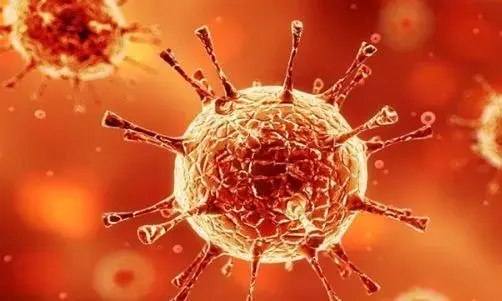- Home
- Medical news & Guidelines
- Anesthesiology
- Cardiology and CTVS
- Critical Care
- Dentistry
- Dermatology
- Diabetes and Endocrinology
- ENT
- Gastroenterology
- Medicine
- Nephrology
- Neurology
- Obstretics-Gynaecology
- Oncology
- Ophthalmology
- Orthopaedics
- Pediatrics-Neonatology
- Psychiatry
- Pulmonology
- Radiology
- Surgery
- Urology
- Laboratory Medicine
- Diet
- Nursing
- Paramedical
- Physiotherapy
- Health news
- Fact Check
- Bone Health Fact Check
- Brain Health Fact Check
- Cancer Related Fact Check
- Child Care Fact Check
- Dental and oral health fact check
- Diabetes and metabolic health fact check
- Diet and Nutrition Fact Check
- Eye and ENT Care Fact Check
- Fitness fact check
- Gut health fact check
- Heart health fact check
- Kidney health fact check
- Medical education fact check
- Men's health fact check
- Respiratory fact check
- Skin and hair care fact check
- Vaccine and Immunization fact check
- Women's health fact check
- AYUSH
- State News
- Andaman and Nicobar Islands
- Andhra Pradesh
- Arunachal Pradesh
- Assam
- Bihar
- Chandigarh
- Chattisgarh
- Dadra and Nagar Haveli
- Daman and Diu
- Delhi
- Goa
- Gujarat
- Haryana
- Himachal Pradesh
- Jammu & Kashmir
- Jharkhand
- Karnataka
- Kerala
- Ladakh
- Lakshadweep
- Madhya Pradesh
- Maharashtra
- Manipur
- Meghalaya
- Mizoram
- Nagaland
- Odisha
- Puducherry
- Punjab
- Rajasthan
- Sikkim
- Tamil Nadu
- Telangana
- Tripura
- Uttar Pradesh
- Uttrakhand
- West Bengal
- Medical Education
- Industry
Orbital Compartment Syndrome in COVID-19 after Prolonged Prone Position Ventilation: JAMA

Permanent Vision Loss due to Orbital Compression Syndrome may occur in Patients Undergoing Prolonged Prone Position Ventilation.
Lucy Sun and colleagues from Department of Ophthalmology and Northwell Eye Institute, New York have reported 2 cases of orbital compartment syndrome in the setting of prolonged prone positioning of patients in the intensive care unit during the COVID-19 pandemic.
The report has been published in JAMA Ophthalmology
Prolonged prone positioning is an adjunctive strategy deployed in severely ill patients of COVID-19 with acute respiratory distress syndrome who are unresponsive to maximum optimal ventilator settings in order to improve oxygenation. It is recognized that patients in the prone position during surgery for extended periods of time are at risk of developing orbital compartment syndrome if the eyes are not protected because of direct pressure to the orbit and the globe. COVID-19 is further known to be associated with a high prevalence of coagulopathy and thromboembolism that affect different organs including the eye. The prevalence of hypercoagulable state is more in severely ill patients who have elevated levels of fibrinogen and dimerized plasmin fragment D levels. Therefore, concern has been raised about the possibility of vision loss in severely ill patients of COVID-19 undergoing prolonged treatment in ICU, especially in prone position.
The case series includes four patients with severe COVID-19 who required prolonged prone position ventilation in the intensive care unit of a tertiary care hospital. They were noted to have significant periorbital oedema and a bedside ophthalmic examination was undertaken.
Visual assessment was not possible as the patients were deeply sedated. All patients had peri-orbital oedema which was more pronounced in the dependent eye. Of the 4 patients, 2 had bilateral fundoscopic findings of optic disc oedema and retinal haemorrhages, most consistent with a presumed diagnosis of COVID-19–associated papillophlebitis. One of the patients also had scattered Roth spots in the retina. These patients were also found to have substantially elevated IOP in the prone position when compared with the supine position. Both patients also had abnormally elevated dimerized plasmin fragment D levels. The fundus findings in the other two patients were normal.
The authors postulate that prolonged prone positioning of patients with COVID-19 can be associated with elevated intraocular pressure from periorbital edema, direct compression on the eye, and increased orbital venous pressure. Development of papillophlebitis with optic disc edema and retinal hemorrhages may be associated with the hypercoagulable state caused by COVID-19.
According to the authors, awareness about these possible ophthalmic complications is necessary while treating severely ill patients with COVID -19 so as to prevent devastating permanent visual loss. In conclusion, the authors suggest the following recommendations: (1) Raising awareness of the potential risk of vision loss following prolonged prone positioning, (2) Encouraging the use of protective cushioning of the eyes to avoid mechanical pressure on the globe during prone positioning, (3) If appropriate, maintaining the patient's head position above heart level, and (4) consideration of performing a fundus examination to evaluate for the presence of optic disc or retinal abnormalities in prone-positioned patients in the ICU.
For further reading, please click
https://jamanetwork.com/journals/jamaophthalmology/fullarticle/2772984
Dr Sudha Seetharam is an Ophthalmologist practising at Laxmi Eye Institute, Maharashtra. She has received her MBBS from Medical College, Kolkata and M.S (Ophthalmology) from Maulana Azad Medical College, New Delhi. Writing and teaching are her passions. She is the author of the book “Self-assessment and Review of Ophthalmology” meant for MBBS students preparing for NEET PG Medical Entrance examination. She is a faculty of Ophthalmology at various teaching institutes and online platforms which train students for NEET PG Medical Entrance examination. She has also authored the book “Beyond Medicine- Life Lessons Learnt as a Doctor” which describes the real life experiences of a doctor during internship in a government hospital.
Dr Kamal Kant Kohli-MBBS, DTCD- a chest specialist with more than 30 years of practice and a flair for writing clinical articles, Dr Kamal Kant Kohli joined Medical Dialogues as a Chief Editor of Medical News. Besides writing articles, as an editor, he proofreads and verifies all the medical content published on Medical Dialogues including those coming from journals, studies,medical conferences,guidelines etc. Email: drkohli@medicaldialogues.in. Contact no. 011-43720751


